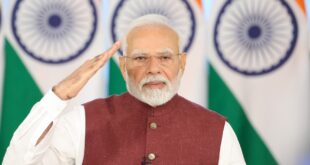Barack Obama’s Journey & Struggles : Barack Obama’s presidency is a story of breaking barriers and embodying the American dream. Born into a multicultural family, raised with middle-class values, and educated through hard work, his rise to the highest office in the U.S. is a testament to what can be achieved through perseverance and service to others. His life is filled with moments of historical significance and personal triumph, making him an inspirational figure for generations to come.
Barack Obama’s early life and family background
Barack Hussein Obama II was born on August 4, 1961, in Honolulu, Hawaii. His father, Barack Obama Sr., was a Kenyan economist who came to the United States to pursue higher education, while his mother, Stanley Ann Dunham, was a Kansas-born anthropologist. The couple met while studying in Hawaii. Their marriage, however, was short-lived, and they divorced when Barack was just two years old. His father returned to Kenya, and Barack would only meet him once more before his father’s death in 1982.

Obama’s early years were spent in a multicultural environment, partly in Hawaii and partly in Indonesia, where his mother remarried and the family moved. This exposure to diverse cultures shaped his worldview. By the time Obama was in fifth grade, he returned to Honolulu to live with his maternal grandparents and attend Punahou School, one of Hawaii’s most prestigious institutions. He received a scholarship to attend the school, marking the beginning of a promising academic career.
Barack Obama’s identity and education
Obama’s journey to discover his identity was not without struggles. In his memoir Dreams from My Father (1995), he candidly reflects on the challenges he faced growing up as a biracial child in America. This search for belonging and purpose became a theme that defined much of his early life.
After high school, Obama attended Occidental College in Los Angeles for two years before transferring to Columbia University in New York City, where he majored in political science and international relations. Graduating in 1983, he worked briefly in New York before moving to Chicago to become a community organizer on the city’s South Side. In Chicago, he worked with churches to address housing issues and establish job-training programs for communities hit hard by the economic downturn following the closure of steel mills.
Barack Obama’s law school and civil rights work
In 1988, Obama enrolled at Harvard Law School, where he made history by becoming the first African American president of the prestigious Harvard Law Review. His leadership and intellect gained national attention. After graduating with a law degree, he returned to Chicago, where he joined a small law firm that specialized in civil rights cases. This legal work, combined with his earlier community organizing experience, positioned Obama as a powerful advocate for justice and equality.
Barack Obama’s Marriage and Family

In 1992, Obama married Michelle Robinson, a fellow Harvard Law graduate who was then working at a Chicago law firm. The couple met when Obama was a summer associate at her firm, and their relationship grew stronger as they supported each other’s ambitions. Michelle would later become an important figure in her own right, both during and after Obama’s presidency.
Barack Obama’s Journey & Struggles
Together, they have two daughters: Malia, born in 1998, and Sasha, born in 2001. The Obama family became a symbol of grace and dignity throughout his political career, serving as a model of unity and modern American family values.
Barack Obama’s Political Rise: From the Illinois Senate to the US Senate
Obama’s political career began in the Illinois State Senate, where he was elected in 1996. He quickly made a name for himself as a pragmatic politician who could work across party lines, tackling issues like ethics reform and healthcare. His effectiveness in the state legislature earned him a bid for the U.S. Senate, and in 2004, he won a landslide victory.
His keynote address at the Democratic National Convention in 2004 was a defining moment that catapulted him onto the national stage. The speech, which emphasized unity, hope, and the possibility of an inclusive America, resonated deeply with the public. From that moment, many saw Obama as a future presidential candidate, although few expected it to happen so soon.
The 2008 Presidential Campaign and Election
In 2008, Obama ran for president against Arizona Senator John McCain, becoming the first African American to be nominated by a major political party. His campaign was built on themes of hope, change, and a promise to bring a new kind of politics to Washington. He inspired millions of voters, particularly young people and minorities, who turned out in record numbers.
Obama won the election with a decisive 365 to 173 electoral votes, making history as the first African American president of the United States. His election symbolized a new era in American politics, breaking racial barriers that had persisted for centuries.
Challenges and Achievements of Barack Obama’s first term
Upon taking office in January 2009, Obama faced a series of unprecedented challenges. The global financial crisis had severely weakened the U.S. economy, with widespread unemployment and a housing market in collapse. Internationally, the U.S. was still engaged in wars in Iraq and Afghanistan, and terrorism remained a constant threat.
In response, Obama implemented an ambitious agenda that included the American Recovery and Reinvestment Act, aimed at stimulating the economy through federal spending and tax cuts. His administration also passed the Affordable Care Act (ACA), commonly known as “Obamacare,” which sought to provide affordable healthcare coverage to millions of Americans who previously lacked insurance.
Barack Obama’s Journey & Struggles
On the foreign policy front, Obama oversaw the operation that led to the killing of Osama bin Laden in 2011, delivering a significant blow to al-Qaeda. His administration also sought to end U.S. involvement in Iraq while managing the ongoing conflict in Afghanistan.
Barack Obama’s Nobel Peace Prize and his international relations

In 2009, just months into his first term, Obama was awarded the Nobel Peace Prize for his efforts to strengthen international diplomacy and foster cooperation between nations. The award was controversial at the time, as many felt it was premature. Nevertheless, it reflected global hope that Obama’s presidency would mark a new chapter in U.S. foreign relations.
Obama’s foreign policy focused on rebuilding relationships with allies and negotiating with hostile nations. His administration negotiated the Iran nuclear deal, aimed at preventing Iran from developing nuclear weapons, and played a key role in the Paris Climate Agreement, which sought to reduce global carbon emissions.
Barack Obama’s second term and continuing challenges
Obama was re-elected in 2012, defeating Republican candidate Mitt Romney with 332 electoral votes to 206. His second term was marked by continued challenges in the Middle East, as the rise of the Islamic State (ISIS) threatened stability in Syria and Iraq. Domestically, Obama faced opposition from a divided Congress, which made it difficult to advance many of his legislative priorities.
Despite these challenges, Obama achieved several significant victories, including the legalization of same-sex marriage nationwide and the continuation of his healthcare reforms. He also focused on issues like criminal justice reform and gun control, although progress in these areas was often limited by political opposition.
Thoughts on Barack Obama’s legacy and civil rights
One of the defining moments of Obama’s presidency came during the 50th anniversary of the Selma to Montgomery civil rights marches. In a moving speech, Obama reflected on the progress that had been made since the civil rights era but acknowledged that the work was far from over. His administration also oversaw the opening of the National Museum of African American History and Culture, a landmark moment that celebrated the contributions of African Americans to the nation’s history.
Barack Obama’s Journey & Struggles
Obama’s presidency will be remembered not only for his policy achievements but also for the hope and inspiration he brought to millions of people around the world. As the first African American president, his election was a powerful symbol of the progress the U.S. has made, though his presidency also highlighted the work that remains in achieving true equality.
Barack Obama’s life after presidency
After leaving office in 2017, Obama remained active in public life. He established the Obama Foundation, dedicated to civic engagement and leadership development, and continued to speak out on issues like climate change, democracy, and social justice. His post-presidency has been marked by a commitment to mentoring the next generation of leaders, ensuring that his legacy of hope and change continues to inspire.
Barack Obama’s journey from a community organizer to the 44th President of the United States is one of resilience, vision, and leadership. His presidency not only reshaped American politics but also set the stage for future leaders to build on the principles of justice, equality, and hope for a better world.
 Social Hungama Hindi News, हिंदी न्यूज़ , Hindi Samachar, हिंदी समाचार, Latest News in Hindi, Sarkari Result
Social Hungama Hindi News, हिंदी न्यूज़ , Hindi Samachar, हिंदी समाचार, Latest News in Hindi, Sarkari Result




